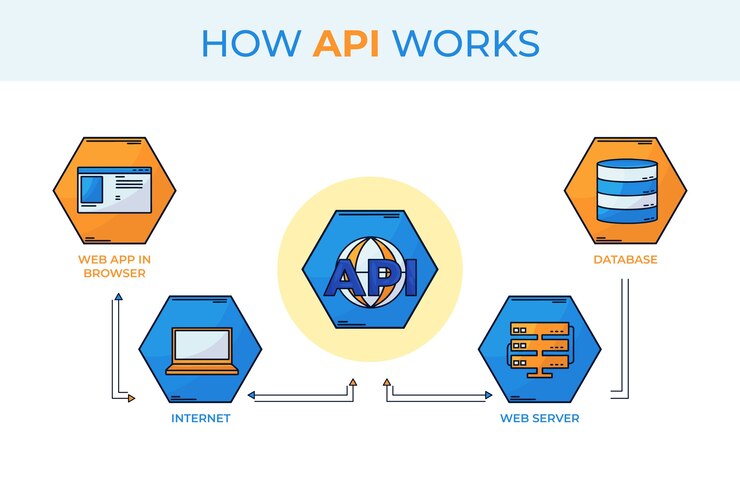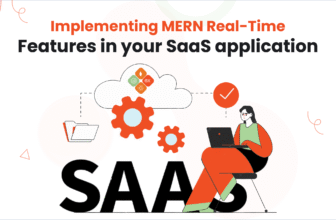
Welcome to the future of document creation! With the rapid advancements in technology, how we create and manage documents is transforming. Enter Documents Generator API technology, the game-changer simplifying and streamlining document creation. Imagine automating tedious manual tasks, ensuring accuracy, and saving time like never before. Whether for businesses or individuals, embracing this technology opens the door to efficient workflows and smarter document management. Let’s dive into how this innovation is shaping the world of documents.
Understanding Documents Generator API Technology
Definition and Functionality
In our ever-evolving digital landscape, understanding Documents Generator API technology is crucial for anyone seeking to optimize document creation processes. Essentially, a Documents Generator API is a set of routines and protocols that allow developers to generate documents through a programming interface. These APIs can automatically create documents in various formats, save them, and even deliver them via email or other electronic means.
The functionality goes beyond mere creation. An API can integrate with existing systems to pull data from multiple sources, merge it, and format it according to specified templates. This ensures that documents are not only generated quickly but also accurately reflect the most current data. Whether you’re crafting invoices, reports, or contracts, a Documents Generator API can make the process far more efficient and reliable.
Benefits of Using API for Document Creation
Using an API for document generation brings numerous benefits, making it a savvy choice for modern businesses aiming to stay ahead:
– Efficiency: By automating repetitive tasks associated with document creation, businesses can save invaluable time and refocus their efforts on core activities.
– Consistency: Document templates ensure that all documents maintain a uniform structure and style, eliminating discrepancies and promoting professionalism.
– Scalability: As businesses grow, their document processing needs expand. APIs handle large volumes effortlessly, allowing organizations to scale without additional stress.
– Real-Time Updates: Integrations can ensure that documents are updated in real-time, reflecting the latest data and insights instantly.
– Cost Savings: Reducing the need for manual labor in document generation cuts down on operational costs, freeing up the budget for other initiatives.
Key Players in the Documents Generator API Market
Numerous players have ventured into the documents generator API market, each offering unique features and capabilities. Here’s a glimpse at some of the key movers in this innovative space:
– Google Docs API: This API offers seamless integration with Google Workspace, allowing users to automate document creation within the widely used platform.
– DocuSign: Known primarily for e-signature capabilities, DocuSign also provides robust document generation features, particularly for legal and financial industries.
– Docmosis: This tool is praised for its ease of use and flexibility, allowing developers to produce documents using templates in Word and PDF formats.
– PDFShift: Specializing in converting HTML to PDF, PDFShift can be used by those who need to generate visually rich documents with precision.
These are just a few names among a myriad of options available, each contributing to pushing the boundaries of what document generation software technology can achieve.
The Impact on Business Operations
Streamlining Document Workflow
Integrating Documents Generator API technology into business operations can dramatically streamline document workflow. With automated systems in place, mundane tasks like data collection, formatting, and distribution are handled in the background. This not only speeds up the process but also allows employees to concentrate on strategic tasks that drive business growth.
Imagine a scenario where an employee has to manually sort customer data, insert it into a template, proofread it, and then send out over a hundred customized reports. Now, with API technology, these steps can be accomplished with a few clicks, ensuring that deadlines are met with minimal hassle.
Enhancing Collaboration and Sharing
Collaboration in document creation becomes both easy and seamless with API technology. Teams can work on shared documents without the fear of overwriting each other’s work or dealing with version control issues. Changes are synchronized automatically, fostering a collaborative environment that encourages creativity and innovation.
Moreover, sharing documents is simplified, as these APIs can be programmed to distribute information automatically to selected stakeholders or platforms. This eases communication and ensures all involved parties stay informed and aligned with the latest updates.
Reducing Errors and Improving Accuracy
Human errors in document creation can lead to significant setbacks, from simple misunderstandings to legal implications. Documents Generator APIs minimize these risks by ensuring data is consistently and automatically pulled from accurate sources and inserted into the right places.
Automation allows for validation checks to be in place, flagging inconsistencies or anomalies before the final document is generated. This improves accuracy and reduces the likelihood of errors slipping through the cracks, providing businesses with peace of mind and greater reliability in their documentation processes.
In conclusion, embracing Documents Generator API technology is not just a trend—it’s a strategic move towards future-proofing operations and unlocking a new level of efficiency and accuracy in document handling.
Future Trends in Document Creation
In a world that’s getting smarter by the day, document creation is undergoing a quiet but powerful revolution. At the heart of this change are Documents Generator APIs. Let’s dive into the future trends that are shaping this exciting field.
Integration with AI and Machine Learning
Artificial Intelligence (AI) and Machine Learning (ML) are not just buzzwords—they’re the backbone of next-level document automation. These technologies make it possible for documents to be more than just static pieces of information. Imagine a Contracts Generator API that predicts the clauses you need based on previous contracts or a report generator that can pull data, analyze it, and offer stunning visual insights—all in seconds! AI algorithms can learn from past documents to speed up the creation process, ensuring that what’s being delivered is not only quick but also aligned with the user’s needs. The incorporation of AI and ML offers endless possibilities for smarter, more intuitive document creation workflows.
Customization and Personalization Capabilities
Shortly, one-size-fits-all will be a thing of the past. With the help of Documents Generator API technology, customization, and personalization capabilities are being taken to new heights. Businesses can now create documents tailored not just to their branding but to the individual needs of the recipient.
– Dynamic Content: APIs can fetch the most relevant information, tailoring each document with up-to-date and context-specific content.
– User Profiles: By remembering user preferences, APIs can generate personalized documents, whether it’s for customers, employees, or partners.
– Interactive Documents: Imagine documents that can adapt themselves to the needs of the user, changing the way recommendations or feedback are incorporated.
Through these advancements, every piece of documentation—be it marketing collateral, internal reports, or customer responses—can feel like it was crafted for just one person.
The Role of Cloud-Based Solutions
Cloud technology is a game-changer in the world of document creation. Thanks to cloud-based solutions, gone are the days when documents were confined to local hard drives.
– Accessibility: With cloud-based document generators, users can create, edit, and share documents from anywhere in the world, at any time. This boost in accessibility ensures that work can continue unhindered, even on the go.
– Collaboration: Multiple users can work on a document simultaneously, fostering real-time collaboration. It’s like having a virtual co-working space that brings teams together, irrespective of their physical locations.
– Scalability: Cloud solutions offer the flexibility to scale the document creation process up or down, depending on the organization’s needs, without the hefty investment in infrastructure.
As cloud technology evolves, the collaboration and efficiency benefits it brings to document creation become even more pronounced.
Challenges and Considerations
While the future of document creation looks bright, it’s not without its hurdles. There are several challenges and considerations that businesses need to be aware of as they step into this promising territory.
Security and Privacy Concerns
With great technology comes great responsibility, particularly in ensuring the security and privacy of documents. As documents move online and automation increases, safeguarding sensitive information becomes paramount.
– Data Encryption: APIs should ensure that any data in transit and at rest is encrypted to protect against unauthorized access.
– Compliance: Businesses need to ensure they comply with data protection regulations like GDPR, CCPA, and others that govern document handling.
Firms that fail to address these concerns could find themselves at risk of data breaches, which could have far-reaching consequences for their reputation and bottom line.
Technical Expertise and Training Requirements
To effectively harness the power of Documents Generator APIs, a certain level of technical expertise is required. While these tools are designed to simplify and speed up document creation, they can initially seem daunting to those unfamiliar with technology or coding.
– Training Programs: Companies investing in such technology may need to develop comprehensive training programs to upskill their workforce.
Without adequate training and support, there is a risk that the potential of these advanced technologies may not be fully realized.
Cost Implications and ROI
The cost implications of implementing new technology are always a consideration. Documents Generator APIs, though revolutionary, come with their costs related to purchase, integration, and maintenance.
– Initial Investment: While the initial outlay might seem significant, businesses should focus on long-term efficiencies and cost savings.
– ROI Measurements: Companies must establish metrics to measure ROI effectively so that the value derived from these tools—such as increased productivity, reduced error rates, and faster document turnaround times—can be quantified and communicated.
Ultimately, while there is an upfront cost, the potential return on investment from streamlined operations and enhanced document quality can make the investment worthwhile.
By understanding these challenges, businesses can plan proactively, ensuring that their journey into the future of document creation is smooth and rewarding.
Conclusion
In the fast-paced world of technology, leveraging Documents Generator API technology is transforming how we think about document creation and automation. With the ability to automate repetitive tasks and streamline workflows, these tools make document processes more efficient and less error-prone.
– Save time and resources by reducing manual effort.
– Enhance accuracy with consistent, automated formatting.
– Facilitate customization to fit specific needs and preferences.
Embracing this technology not only improves productivity but also sets a solid foundation for future innovations in document handling. As businesses continue to grow and adapt, using these advanced APIs can be a game-changer, making the future of document creation both exciting and promising. Let’s step into this future, where document management is seamless and intuitive, thanks to the ever-evolving API technology. Embrace the change, and watch your document processes evolve like never before!







